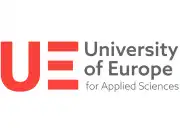Master’s programs in Healthcare
- Master degree in Healthcare
- Advantages of Master’s programs in Healthcare
- Disadvantages of Master’s programs in Healthcare
- Popular universities for Master’s programs in Healthcare
- Admission requirements for Master’s programs in Healthcare
- Documents for admission to Master’s programs in Healthcare
- Cost of studying in Master’s programs in Healthcare
- Scholarships and grants for Master’s programs in Healthcare
- Career prospects after Master’s programs in Healthcare
- Is it worth studying in Master’s programs in Healthcare?
- Frequently Asked Questions

Master of Science - Clinical Psychology with focus on Rehabilitation and Gerontopsychology
University of Europe for Applied Sciences - GermanyDo you want to study human behavior in grad school?
Combining a Bachelor's and Master's in psychology at UE gives students access to a broader professional field and more study options. UE's Clinical Psychology Master's degree focuses on rehabilitation, gerontological psychology, coaching,…

Master of Science - International Health Management
Berlin School of Business and InnovationDegree awarded by Università Telematica Internazionale UNINETTUNO, Italy.
The MSc in International Health Management is designed to educate health sector managers and leaders.
The curriculum focuses on worldwide and local health management and uses new knowledge and evidence…

Master - Public Health
London School of Business and FinanceThe Master of Public Health curriculum provides students with both theoretical and practical skillset development in the field of public health. The goal of the program is to help students make the most of their previous education and work experience in the public and commercial sectors. Students…

Master - Public Health
Arden UniversityThe Master of Public Health degree at Arden University trains professionals to manage and direct programs aimed at preventing communicable and non-communicable diseases. This course will teach you how to manage health services in the digital age and improve the health of your neighborhood, region,…

Master of Science - Global Health Management
Arden UniversityArden's MSc Global Health Management will teach you technical, managerial, and leadership abilities for global health management. The course focuses on offering the newest skills in digital literacy and data analysis used in global health management to prevent disease in global populations and promote…

Master of Science - Applied Human Nutrition
Oxford Brookes UniversityApplied Human Nutrition is a practical, research driven master course. It explains the science behind how humans need to eat from conception to old life.
In all age groups and industries, poor nutrition is contributing to an increase in public health issues. This is particularly evident…

Master of Science - Applied Sport and Exercise Nutrition
Oxford Brookes UniversityFor students who desire to work with a variety of people to improve their health, fitness, or athletic performance, we offer an MSc in Applied Sport and Exercise Nutrition.Graduates with training in human nutrition or sport and exercise science are welcomed to apply.
The way we eat has a…

Master of Science - Physiotherapy
Oxford Brookes UniversityFor graduates with a pertinent first degree, our MSc in Physiotherapy (Pre-Registration) serves as a prerequisite course. It offers the chance to enroll in a physiotherapy program leading to master's level registration.
Some of our learning modules are shared with other health and social…

Master - Public Health
Oxford Brookes UniversityWe invite applications from a wide range of professions from the UK, EU, and abroad to our highly effective and innovative MPH in Public Health program. It is perfect if you want to increase your knowledge and skill set, or if you're getting ready to improve in your career or field.
The…

Master of Science - Occupational Therapy
Oxford Brookes UniversityYou can earn a master's degree after completing our MSc in Occupational Therapy programme. Additionally, you must be qualified to submit an application for registration as an occupational therapist with the UK's Health and Care Professions Council (HCPC).
Your understanding of occupational…
Master degree in Healthcare
Master’s programs in healthcare attract international students seeking to gain in-depth knowledge in the fields of medicine, public health, biomedical sciences, pharmacy, and related disciplines. Education at this level provides not only academic training but also practical skills necessary for work in international organizations, clinics, research centers, and universities.
Master’s programs in healthcare are designed for graduates of bachelor’s programs in fields such as “Medicine,” “Biology,” “Pharmacy,” “Social Sciences,” and other related areas. The duration of study typically ranges from 1 to 2 years, depending on the country and the chosen program.
Advantages of Master’s programs in Healthcare
Studying for a master’s degree in healthcare offers several clear advantages:
- International recognition of the diploma. Graduates of leading universities can work worldwide.
- Relevance of knowledge. Programs are built on the latest research in medicine and healthcare.
- High demand for specialists. According to WHO, by 2030, there will be a global shortage of over 10 million healthcare workers.
- Opportunities for specialization. Students can choose narrow fields: epidemiology, healthcare, sports medicine, pharmacology, and others.
- Development of a scientific career. A master’s degree opens the path to a PhD and academic activities.
Disadvantages of Master’s programs in Healthcare
Despite significant advantages, international students face certain challenges:
- High cost of education. At top universities, the cost per year can reach 20,000–40,000 euros.
- Complex admission requirements. It is necessary to validate a bachelor’s degree, demonstrate proficiency in English (IELTS 6.5–7.0), and have relevant academic preparation.
- Heavy academic workload. Master’s programs in healthcare involve intensive laboratory research and clinical practice.
- Adaptation to a new environment. Moving to another country requires psychological resilience.
How to overcome challenges?
- Apply for scholarships and grants to reduce financial burden.
- Start preparing for exams in advance, including English language tests.
- Utilize support from university adaptation centers for international students.
- Create a clear study and rest plan to avoid emotional burnout.
Popular universities for Master’s programs in Healthcare
Master’s programs in healthcare are offered in many countries across Europe, Asia, Australia, and the USA. Among the leading universities:
- Harvard University (USA) – programs in public health and biomedicine.
- University of Oxford (UK) – medical research and global healthcare.
- Karolinska Institutet (Sweden) – one of the best medical institutions in Europe.
- University of Melbourne (Australia) – master’s programs in medicine and pharmacology.
- Torrens University (Australia) – focused on practice-oriented education, programs in healthcare, nursing, and medical management.
- IU International University of Applied Sciences (Germany) – flexible master’s programs in healthcare, including online learning and international specializations.
- National University of Singapore (Singapore) – specialization in epidemiology and global healthcare.
Admission requirements for Master’s programs in Healthcare
Main criteria for international students:
- a bachelor’s degree in a related field (medicine, biology, psychology, pharmacy);
- high GPA (from 3.0 on the international scale);
- English language proficiency certificate (IELTS, TOEFL);
- sometimes work experience or participation in research projects is required.
Documents for admission to Master’s programs in Healthcare
Universities typically require the following documents:
- completed online application;
- copy of the bachelor’s degree and transcript;
- motivation letter;
- academic references;
- IELTS/TOEFL certificates;
- resume (CV);
- copy of passport;
- proof of financial solvency.
Cost of studying in Master’s programs in Healthcare
The cost depends on the country and university.
| Country | Average Annual Tuition Cost |
|---|---|
| United Kingdom | 15,000 – 30,000 £ |
| USA | 20,000 – 45,000 $ |
| Germany | Free or 1,500 – 4,000 € (fees) |
| Australia | 18,000 – 35,000 AUD |
| Netherlands | 12,000 – 20,000 € |
Scholarships and grants for Master’s programs in Healthcare
International students can apply for support:
- Erasmus+ – for studying in Europe.
- DAAD (Germany) – covers living expenses and tuition.
- Chevening (UK) – full scholarship for master’s programs.
- Fulbright (USA) – funding for international students.
- Australia Awards – Australian government program.
Career prospects after Master’s programs in Healthcare
Graduates gain broad employment opportunities:
- work in international organizations (WHO, Red Cross);
- research activities in universities;
- medical clinics and pharmaceutical companies;
- government healthcare structures;
- private medical practice.
Salaries depend on the country: in Europe, a starting specialist earns 2,500–4,000 € per month, in the USA – 4,000–6,000 $, in Australia – 3,500–5,000 AUD.
Is it worth studying in Master’s programs in Healthcare?
Choosing a master’s program abroad in healthcare is a significant step that requires both financial investment and personal readiness for change. Nevertheless, the benefits of studying significantly outweigh the potential challenges.
First and foremost, an internationally recognized diploma opens access to work in leading medical institutions worldwide. If career growth opportunities are limited in your home country, studying abroad provides a chance to reach a new level. Additionally, many countries (e.g., Canada, Australia, Germany) actively recruit international healthcare specialists and offer graduates opportunities to stay and work.
The second compelling argument is access to cutting-edge technologies and research. Universities abroad are equipped with world-class laboratories, and students have the opportunity to participate in scientific projects and publish in international journals.
The cultural value of studying should not be overlooked. Living in another country fosters flexibility of thinking, develops communication skills, and the ability to work in a multicultural environment - qualities highly valued by employers.
However, the practical side must also be considered. Education requires significant financial investment, so it is important to explore scholarship and grant options in advance. Additionally, students need to be prepared for a high workload: healthcare programs include both theoretical disciplines and practice, requiring full commitment.
Thus, studying for a master’s degree in healthcare is worthwhile for those who:
- plan a career in international medicine, science, or pharmacy;
- want to obtain a diploma recognized in many countries;
- are ready to invest time and effort in intensive education;
- aspire to career growth and financial stability.
Weighing all the pros and cons, it can be said: a master’s degree abroad in healthcare is an investment in the future that pays off with employment opportunities, high salaries, and personal development.
Frequently Asked Questions
- Is it possible to enroll in a master’s program in healthcare without a medical degree?
Yes, if the bachelor’s degree is related to biology, chemistry, pharmacy, or psychology. - How long does the program last?
On average, from 1 to 2 years, depending on the country and program. - Is it possible to combine study and work?
In many countries, international students are allowed to work up to 20 hours per week. - What are the employment prospects?
Graduates are in demand in medical organizations, research centers, and pharmaceutical companies. - Is English language proficiency mandatory?
Yes, international programs require IELTS or TOEFL.